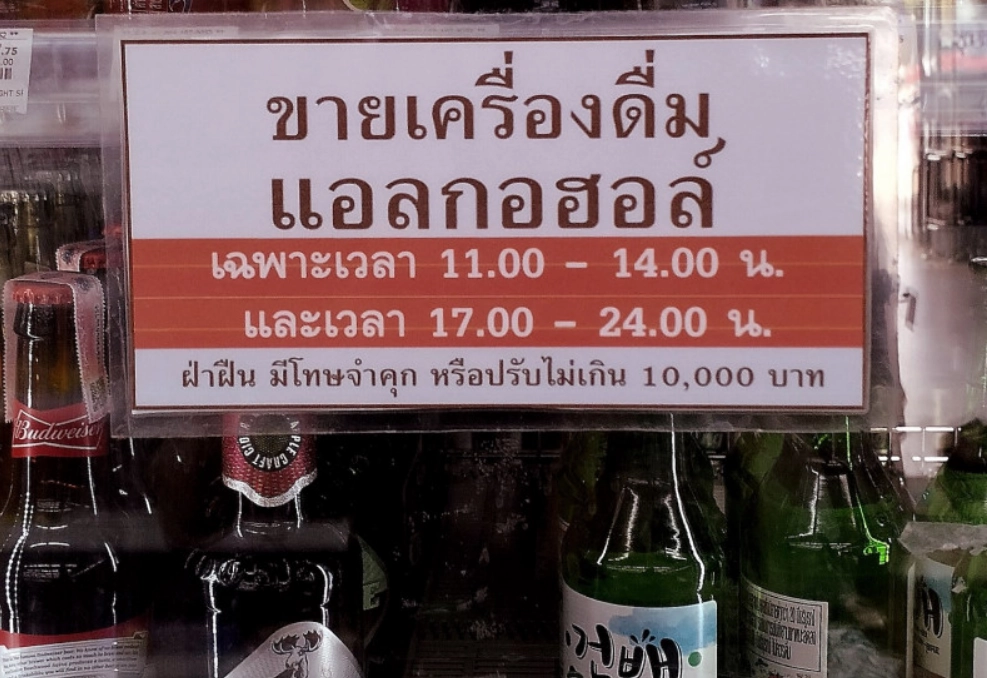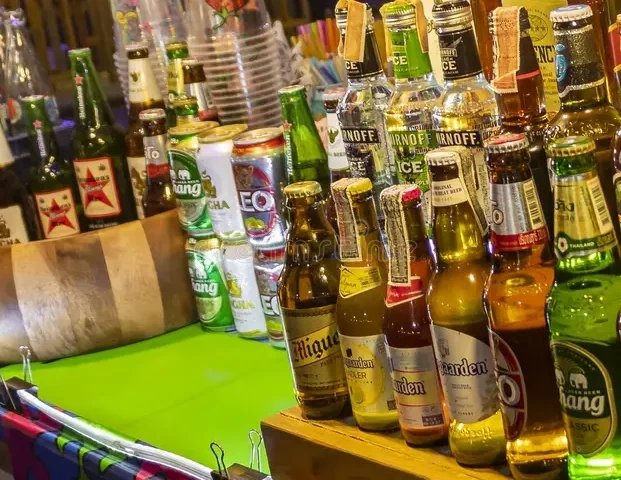Thailand Moves to Ease Alcohol Restrictions: A Step Towards Liberalization
Thailand, known for its vibrant tourism industry and rich cultural heritage, is taking significant steps to ease its strict alcohol restrictions, which have long been viewed as a barrier to economic growth and the development of the local brewery market. The recent move by the Thai House of Representatives to amend the alcohol control bill has garnered considerable attention and could have far-reaching implications for the country’s economy, tourism, and small businesses.
This decision to ease restrictions on alcohol sales and advertising has been passed with overwhelming support from lawmakers, indicating a strong political will to liberalize a market that is seen as a key driver of both tourism and domestic entrepreneurship. But what exactly does this new legislation entail, and how might it affect the future of alcohol sales in Thailand? This article will provide a comprehensive look at the changes, the motivations behind the reform, and the broader implications for the alcohol industry.
The Background: Strict Alcohol Restrictions in Thailand
For many years, Thailand has implemented strict Alcohol Restrictions that have significantly limited both the sale and advertising of alcoholic beverages. These regulations were initially introduced as part of the government’s efforts to reduce excessive drinking, protect public health, and prevent alcohol-related social issues. However, the impact of these policies has been far-reaching, particularly in terms of stifling the growth potential of the alcohol market and restricting smaller, local businesses.
One of the most prominent Alcohol Restrictions has been the ban on alcohol sales before 11 am and again between 2 pm and 5 pm. This rule, enacted under a 1972 military government order, was originally designed to prevent civil servants from drinking during working hours. Additionally, the limitations on alcohol advertising have been severe, with laws forbidding the use of names, trademarks, or images of alcoholic drinks in promotional materials. While these Alcohol Restrictions have certainly helped mitigate some of the negative effects of alcohol consumption, they have also hindered the ability of small breweries and distilleries to effectively market their products, thus limiting competition in the alcohol industry.

The New Legislation: A Step Towards Easing Alcohol Restrictions
Why the Changes Matter: Boosting Economic Growth and Tourism by Easing Alcohol Restrictions
The decision to ease alcohol restrictions comes at a time when the Thai government is keen to encourage greater economic growth and attract more tourists to the country. Thailand has long been a top destination for global travelers, and the alcohol industry is a significant part of the tourism experience. Bars, restaurants, and hotels often serve as the focal point of nightlife for visitors, and a relaxed alcohol policy could further enhance the country’s appeal as a tourist hub.
By easing alcohol restrictions, Thailand is seeking to stimulate domestic businesses, particularly smaller breweries and distilleries, which have struggled under the weight of heavy regulation. Allowing these businesses to advertise more freely could provide a much-needed boost to the local economy, as it would enable them to compete with the dominant players in the alcohol industry. The country’s beer and spirits market, which has long been dominated by large corporations like Thai Beverage Plc and Boon Rawd Brewery Co., could now see increased competition, leading to a more diverse and competitive market.
Additionally, the relaxation of alcohol laws is seen as part of a broader strategy to liberalize Thailand’s economy and promote tourism. The country’s unique offerings, such as its vibrant nightlife, are integral to its tourism sector, and alcohol plays a significant role in attracting international visitors. The government’s push to ease restrictions is therefore seen as an effort to make Thailand more attractive to tourists, particularly those from countries with more relaxed alcohol regulations.
The Role of Microbreweries and Small Distilleries
Another key aspect of the proposed changes is the push to promote microbreweries and small distilleries. Earlier this year, lawmakers passed a bill designed to promote liquor production by small-scale brewers and distillers. This initiative is aimed at fostering local entrepreneurship and creating a more inclusive market for alcohol producers. Microbreweries and small distilleries have been pushing for greater freedom to produce and sell their products, and the recent amendments to the alcohol control bill represent a significant victory for these smaller businesses.
By allowing small brewers to have more freedom in marketing and selling their products, the government hopes to foster innovation and creativity in the alcohol industry. This could lead to a rise in unique and locally-produced beverages, further enhancing the diversity of the market and giving consumers more options. As microbreweries continue to grow in popularity worldwide, Thailand’s efforts to support these businesses could position the country as a destination for craft beer lovers and connoisseurs of unique spirits.

Challenges and Controversies
While the push to ease alcohol restrictions has been widely welcomed, the move is not without its challenges and controversies. Thailand’s conservative political and cultural climate has made it difficult for certain types of liberalization, particularly in areas related to alcohol consumption. There are concerns that loosening restrictions could lead to an increase in alcohol-related social problems, including excessive drinking and public disorder.
The ban on alcohol sales during certain hours of the day, for example, was originally introduced to curb workplace drinking, especially among civil servants. Critics argue that lifting the ban could lead to social issues such as increased absenteeism and a decline in productivity. Additionally, some worry that relaxing advertising rules could lead to more aggressive marketing strategies that target vulnerable groups, including young people and those at risk of developing alcohol-related problems.
Moreover, the law still needs to pass through the conservative Senate, where opposition to the relaxation of alcohol laws could be more pronounced. Despite the overwhelming support in the House of Representatives, the final outcome of the legislation remains uncertain.
Implications for Tourism and Foreign Investment
The relaxation of alcohol restrictions has the potential to make Thailand even more appealing as a tourist destination. The country’s alcohol laws have long been viewed as restrictive, particularly by international visitors accustomed to more relaxed regulations. By making it easier for bars, restaurants, and hotels to serve alcohol and market their offerings, Thailand can enhance its appeal as a nightlife destination.
In addition, the changes could attract foreign investment, particularly in the hospitality and beverage industries. Investors looking to capitalize on Thailand’s growing tourism sector may find new opportunities in the alcohol market, which could further fuel economic growth and job creation in the country.
Conclusion: A New Chapter for Thailand’s Alcohol Industry
The move to ease alcohol restrictions in Thailand marks a significant turning point in the country’s regulatory approach. By lifting outdated bans on alcohol sales and advertising, the government is opening up new opportunities for businesses, particularly small brewers and distillers, to thrive in a more competitive market. These changes are expected to stimulate economic activity, boost tourism, and help position Thailand as a more attractive destination for global visitors.
However, the road to full implementation is not without challenges. The Senate’s approval of the bill is still required, and there are ongoing concerns about the potential social implications of relaxing alcohol laws. Nonetheless, the overwhelming support in the House of Representatives and the broader push to liberalize the economy suggest that Thailand is heading in a new direction—a direction that seeks to balance regulation with growth and modernization.
As the legislation progresses through the Senate, all eyes will be on the outcome and the potential impact it will have on the alcohol industry, tourism, and the broader Thai economy.
See other articles:
ฟุตบอลฟาวล์: ความเข้าใจในกฎเกณฑ์และผลกระทบในการแข่งขัน












